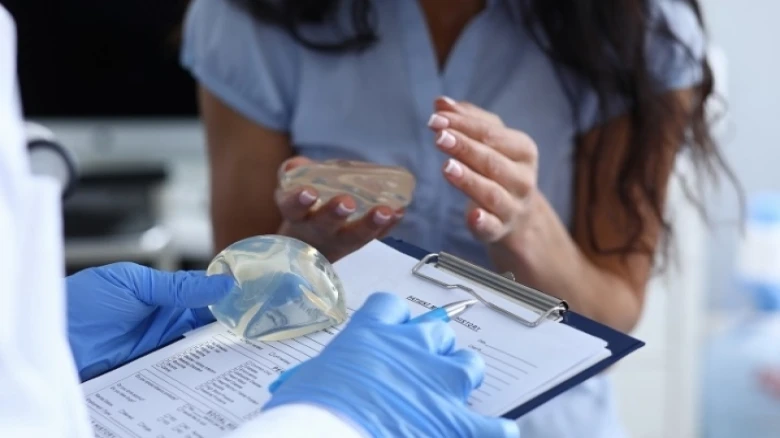Scientists had previously implicated textured implants to a rare malignancy known as anaplastic large cell lymphoma (cancer of the immune system).
Digital Desk: The Food and Drug Administration alerted women who have or are considering having breast implants on Thursday that some abnormalities may develop in scar tissue that forms around the implants.
The cancers appear to be uncommon, but they have been related to all sorts of implants, including those with rough and smooth surfaces, as well as those filled with saline or silicone.
Scientists had previously related anaplastic large cell lymphoma, rare cancer, to textured implants, whose rough exteriors apparently generate more inflammation than smooth implants. Lymphoma is an immune system cancer.
The FDA verified the relationship more than a decade ago, yet Allergan's textured implants remained on the market until 2019. The FDA's new warning drew attention to another type of cancer known as squamous cell carcinoma, as well as other types of lymphoma that may be linked to the implants.
There have only been limited documented cases. The FDA stated that they were aware of less than 20 incidences of carcinoma and 30 cases of unexpected lymphomas in the capsule around the breast implant. (The capsule refers to the scar tissue that forms surrounding the implant.)
However, given the history of implants and their extensive usage, federal health experts decided that caution was required. Women were diagnosed in some situations after years of having breast implants. Swelling, discomfort, lumps, and skin abnormalities were among the symptoms.
Although lymphomas and other abnormalities in the implant area are uncommon, "health care providers and persons who have or are considering breast implants should be informed that cases have been reported to the FDA and in the literature," according to the FDA.
Audra Harrison, an agency representative, stated that the new tumors were an "emerging safety signal with implants that we will be communicating about, separate from ALCL," the previously recorded malignancy.
However, incidences of lymphomas other than ALCL in women with breast implants have been described in the scientific literature for about a decade, according to Dr. Mark Clemens of the University of Texas MD Anderson Cancer Center in Houston.
They are uncommon, he continued, and the new warning should not cause widespread concern. The discovery that ALCL was linked to breast implants has already "allowed us to be more conscious that other things could be happening in that location," according to Clemens.
"If ALCL is rare, they are extremely unusual," he noted. Scar tissue, such as that following breast implant surgery, has long been recognised to produce squamous cell carcinoma, according to Clemens.
"These things can arise from a wound that tries to heal and tries to heal for a long time," he explained. However, the specific nature of the interaction between the implant and the cancer, as well as whether the implant is causing the disease, remains unknown, he said.
In the United States, around 400,000 women receive breast implants each year, 300,000 for cosmetic reasons and 100,000 for reconstruction following mastectomies undertaken to treat or prevent breast cancer.
According to the American Society of Plastic Surgeons, numbers dropped significantly during the first year of the pandemic.
The FDA slapped so-called black-box labels on breast implants last year, warning that they have been related to a variety of chronic medical disorders such as autoimmune illness, joint pain, mental disorientation, muscular aches, and chronic fatigue, as well as cancer.
Breast cancer patients who have had or plan to have chemotherapy or radiation treatments are among those most at risk of acquiring subsequent illnesses, and they make up a major proportion of the women who are advised to have breast reconstruction with implants.
Smokers and women with lupus or diabetes are also more likely to develop problems, according to the FDA.
Breast pain, sensitivity or loss of sensitivity in the breast, or asymmetry will affect one-third of women who get breast implants. According to the FDA, half of the patients will endure severe scar tissue constricting around the implant, and one-third will have implants that rupture or leak.
Almost 60% will require another operation to correct implant complications.
Because of the new warning, the FDA stated on Thursday that it does not recommend that women remove their breast implants. However, the government advises women to monitor their implants and seek medical attention if they observe any odd changes.
Allergan textured implants were recalled after the company's products were related to roughly 600 cancer incidences and 33 fatalities.

Leave A Comment